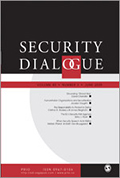The new profiling: Algorithms, black boxes, and the failure of anti-discriminatory safeguards in the European Union

Autor(en): Matthias Leese
Journaltitel: Security Dialogue
Band: 45
Ausgabe: 5
Seiten: 494-511
Publikationsjahr: 2014
